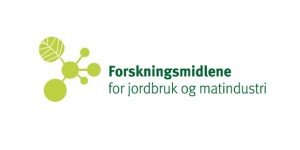Utveckling av den didaktiska processen i ridundervisning (Delstudie 3: Ridlärare-Häst)
- Status Avslutat
- Beviljade medel 1 265 000
- Projektnummer H-17-47-278
- Ansökningsår 2017
- Slutrapport 2 juni 2023
- Organisation Linköpings universtitet
- Huvudsökande Charlotte Lundgren (Sverige)
- E-postadress charlotte.lundgren@liu.se
- Telefon 0730444267
Projektets resultat visar bl.a. hur tränare kan använda hästens handlingar som pedagogiska resurser i träningssituationen, och därigenom koppla ihop vad hästen gör med frågor om hästvälfärd i och utanför träningssituationen. Eftersom en grundtanke i detta delprojekt har varit att synliggöra praktiker som kan stärka andra (ridlärare/tränare och ridlärar-/tränarutbildare) att fortsätta utveckla både förhållningssätt och praktiskt arbete där hästvälfärden får en tydligare plats i träningspraktiken är detta naturligtvis glädjande. Förhoppningen är att kopplingen mellan undervisning/träning och hästvälfärd, och reflektioner över hur denna koppling påverkar och påverkas av relationen mellan ridsportentreprenör/tjänsteleverantör (ridinstruktör/tränare) och kund (ryttare), behöver fortsätta inte minst i skenet av diskussionen om hur ridsporten ska kunna behålla sin SLO (social licence to operate). Projektet har också bidragit till metod- och teoriutveckling inom multimodal interaktionsanalys.
’Delstudie 3: Ridlärare-Häst’ utgör den sista pusselbiten i projektet ”Utveckling av den didaktiska processen i ridundervisning: samspelet mellan ryttare, ridlärare och häst”, där Stiftelsen Hästforskning tidigare finansierat Delstudie 1 (Ryttare-Häst) och Delstudie 2 (Ridlärare-Ryttare). Materialet från Delstudie 1 kommer denna gång analyseras med fokus på hur ridlärare/tränare orienterar sig mot och på olika sätt lyfter fram hästens behov för ryttaren. Syftet är att öka de mänskliga deltagarnas förmåga att aktivt reflektera över sin praktik och att lägga grunden för bättre prestationer samt ökat välbefinnande för ryttare och hästar. Studien kombinerar teorier om lärande och didaktik med metoder från multimodal kommunikationsforskning. Tack vare den utmärkta tekniska kvaliteten på det empiriska materialet möjliggörs nydanande analyser som kommer att utveckla såväl vår förståelse för interaktionen ryttare-ridlärare-häst som teorier och metoder inom det växande fältet hästforskning.
Training riders, and/or instructing riders in a riding school setting, means teaching riders how to act in response to horses’ actions, but also – even if this is less often made explicit in training situations – teaching riders how to think about horses, and how to relate to them in a more general sense.
So, when done in a constructive manner and reflecting recent research on equine welfare, this allows us to discuss and work on issues that may otherwise be difficult to approach within the fragile frame of service provider/customer relations – such as for instance how an individual rider influences the welfare of their horse. By departing from the actions of the horse, translating them to the rider, and putting the horse’s perspective on centre stage, more constructive discussions might be possible – without threatening the face of the rider, and risking losing clients. The practice of highlighting and translating the horse’s actions that are presented here may also have the power to direct the rider’s attention away from what the horse does (not) do and, in a more constructive fashion, to the actions of the riders themselves, and recflections on how those actions are being perceived by the horses.
The recommendation is thus to engage in reflection and discussion with peers within the trainer/instructor communities, and within the trainer/instructor training communities, on how pedagogical practices can be used as resources in teaching riders more about horses. Furthermore, discussions on what is explicitly taught and what is implicitly, intentionally or unintentionally, passed on to riders – the content of the pedagogical practice – needs to be discussed within these groups of professionals. The research-based knowledge regarding horses (predominantly within the natural sciences) and horse-human relations (predominantly within the humanities, social sciences and art) is growing rapidly, and trainers and instructors need to align their training and teaching with both these bodies of knowledge in order to ensure that the work supports the wider society’s continued support for equestrianism. If this challenge is not taken seriously, the long-term implications will not only be that keeping and riding horses is endangered, but that our livelihoods are endangered as well. It is not we, the equestrian professionals or even our riders who ultimately decide if we may continue to spend our days around and with horses, but the general public, and their elected representatives. By taking our own professional practices seriously, we show that, and how, we use- every opportunity to help our riders continue to develop their understanding of the needs of the horses, and consequently, to improve their welfare.













